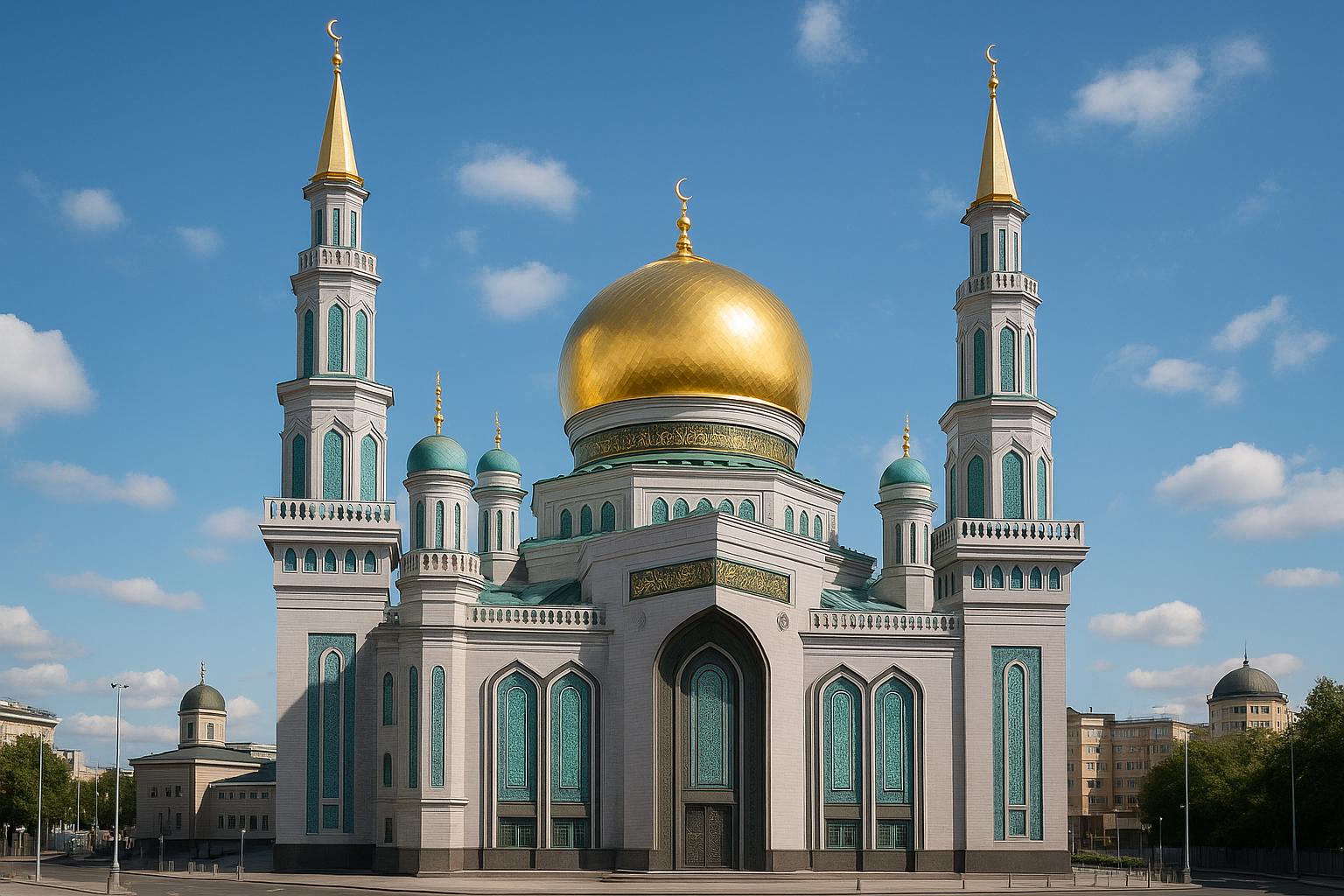Overview of Moscow’s Mosques
Moscow, the capital city of Russia, is not only a political and economic hub but also a cultural mosaic reflecting diverse religious practices. Among the notable religious sites in the city are several mosques, which play an integral role in catering to the spiritual and communal needs of Moscow’s Muslim residents. Of particular prominence is the Moscow Cathedral Mosque, renowned for both its historical pedigree and architectural grandeur.
Historical Background
The Moscow Cathedral Mosque holds a distinguished position as one of the oldest mosques in the Russian capital. Originally constructed in 1904, it was built to address the spiritual requirements of a Muslim population that has woven itself into Moscow’s demographic tapestry over centuries. This was a period marked by significant growth and the integration of diverse communities within the city, making the establishment of such a religious site a landmark event.
Over the years, the mosque has evolved to meet the changing needs of its congregation. In 2015, the mosque underwent a comprehensive reconstruction effort. This development phase was not just about restoring the existing structure, but also enhancing it to reflect both contemporary and traditional Islamic architectural styles. This effort has allowed the mosque to serve a burgeoning number of worshippers who call Moscow home.
Architectural Features
The architectural design of the Moscow Cathedral Mosque represents a synthesis of historical Islamic motifs and modern construction methodologies. At the heart of its design lies a massive central dome, a hallmark of Islamic architecture that symbolizes the vault of heaven. This is flanked by elegant minarets, which historically have served the purpose of calling the faithful to prayer.
Intricate Islamic calligraphy embellishes the mosque’s surfaces, offering verses from the Quran and paying homage to Islamic artistry and devotion. The interior of the mosque is cavernous, designed to welcome upwards of 10,000 worshippers at a time. This makes it not only one of the largest mosques in the city but also a crucial venue for Muslim religious life. Essential amenities within include an expansive prayer hall, which serves as the focal point for worship, and a suite of educational spaces that facilitate religious learning and discourse.
Community Role
The role of Moscow’s mosques, prominently including the Cathedral Mosque, is central to the socio-cultural fabric of the city’s Muslim community. These religious sites serve dual purposes: spiritual upliftment and community cohesion. They act as venues for religious education, where both children and adults can learn about Islamic teachings and values. Sessions in theology, language, and the Quran are regularly held to deepen the knowledge and faith of the attendees.
Moreover, these mosques function as hubs for cultural outings and social events. They play host to religious festivals, community iftar meals during Ramadan, and other gatherings that strengthen the bonds among community members. Such events foster a sense of belonging and offer a network of support to Muslim individuals and families residing in a predominantly non-Muslim city.
Other Notable Mosques in Moscow
The Moscow Cathedral Mosque is but one gem in the network of mosques scattered throughout the city. Moscow’s landscape is dotted with a variety of mosques that reflect the vast cultural diversity and myriad traditions within the Islamic world that have found a home in Moscow. Each mosque, in its own right, is a cultural and social meeting place for different ethnic groups within the Muslim community.
For example, several mosques serve primarily the Tatar community, descendants of Turkic peoples, maintaining their distinct cultural and religious practices. Similarly, mosques catering to Dagestani and Central Asian groups offer a space where their unique regional traditions are preserved and celebrated. These various mosques underline the multicultural fabric that characterizes Islam in Moscow, providing a window into the diverse ways that Islam is practiced and lived out in the city.
For anyone interested in delving deeper into the architectural wonders and cultural significance of these mosques, a range of resources are available. Extensive information can be accessed through local heritage sites, which provide historical context, architectural details, and visitor insights. Additionally, tourism portals offer practical information regarding visiting hours, special events, and organized tours designed for residents and tourists alike, ensuring that these spiritual oases are accessible to all.
Whether for worship, historical interest, or cultural exploration, the mosques of Moscow offer a rich tapestry of experiences and insights into the life of the city’s Muslim community. These spaces, embedded with history and tradition, continue to serve as vibrant centers of faith, learning, and cultural exchange, embodying the spirit of a diverse and dynamic metropolis.

